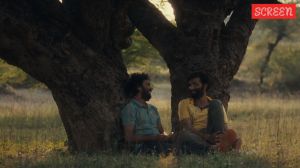Army must speak to the nation
What do the recent Vaishno Devi helicopter crash in the northern command, the court martial of Major Bhatnagar at Chandigarh, and the non-...

What do the recent Vaishno Devi helicopter crash in the northern command, the court martial of Major Bhatnagar at Chandigarh, and the non-publication of Lt. Gen. Henderson Brooke’s 1962 inquiry and the 1971 Indo-Pak war After Action Report have in common? Plenty, if the yardsticks of accountability, justice and the openness of the information system in our Ministry of Defence (MoD) are to be taken into account. In each of these cases a comprehensive statement by the MoD on any act of omission or commission that may or may not have been committed would help in reducing the fog of uncertainty and clear the name of many who feature in these events.
In the first instance, as per press reports, an army aviation Chetak helicopter accompanying an army commander (who incidentally was utilising another helicopter for his own travel), crashes at Sanjichat, killing a brigadier and four other armymen on board, belonging to the general’s personal and security staff. The questions here are: Was visiting a holy shrine a personal or an official act? Could it have been performed by road from nearby Udhampur, the command headquarters? Was there a security threat to the army commander in his own command that he had to fly another chopper with security personnel on board? In a secular country, would we grant permission to every soldier to visit a holy shrine or place of worship pertaining to his religion in a government utility? Would not these choppers have been better utilised at Siachen or Kargil for border area reconnaissance? The attempts to rationalise the trip as operational reconnaissance will not wash given that the accident has taken place precisely one daybefore the general’s own retirement. A military court must go into all details and fix responsibility expeditiously.
The GCM of a field officer in Chandigarh raises questions of another kind. Was it correct for the MoD to first permit press correspondents and photographers into the court and then withdraw only the latter? Secondly, and this is directly connected with the Bhatnagar case and the Kargil conflict, should not an open court (with the press in attendance) also be permitted by the MoD for future deliberations in Kargil Commander Brigadier Surinder Singh’s case? Or for that matter, any other military judicial proceedings that could be now in process in the Kargil affair, against other army personnel. When will all this ambiguity in military jurisprudence end? The MoD and its legal experts might wish to reexamine the entire Army Act and the Defence Services Regulations pertaining to Summary Disposals, attendance by the media, and recording of Summary of Evidence, which is invariably of a confidential nature and generally not made public.
The third issue of the non-publication of the Henderson Brooke’s inquiry and the 1971 war After Action Report has also begun to raise everyone’s hackles. If the defence minister can declare that 100,000 are likely to have perished in the Gujarat earthquake, without any concern for the effect it could have on his countrymen, what harm can possibly now come from publishing the above reports, 39 and 30 years respectively, after the events have taken place? Though the first report is believed to be restricted to the army’s debacle, the country would wish to know of the role played by Nehru, Krishna Menon, the then Intelligence chief and a few inefficient generals at Army Headquarters and in the field at the time. In the second instance, should we not ask why 93,000 POWs were returned to Pakistan, when even today a large number of our own prisoners languish in Pakistani jails? Would not a trade-off of POWs in 1972 have been better? Why did the then PM and defence minister agree to such terms when we were in awin-win situation? It is better to accept an error of judgment made then even now, rather than attempting to brush matters under the carpet.
It is a soldier’s dharma to fight, and it is the MoD’s responsibility to protect him at all times, speak up for him and protect his legitimate interests. The defence minister would earn everyone’s gratitude if an unambiguous and authentic statement on some of these matters, even if at times unpalatable to the armed forces, is provided expeditiously to the nation.
The writer is a retired major-general
Photos


- 01
- 02
- 03
- 04
- 05





























